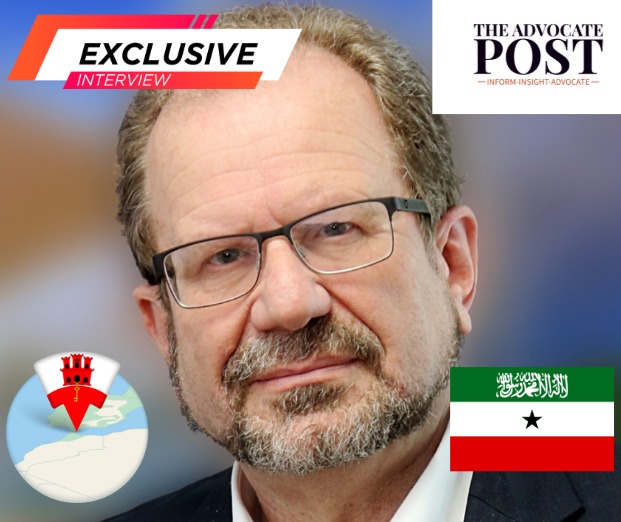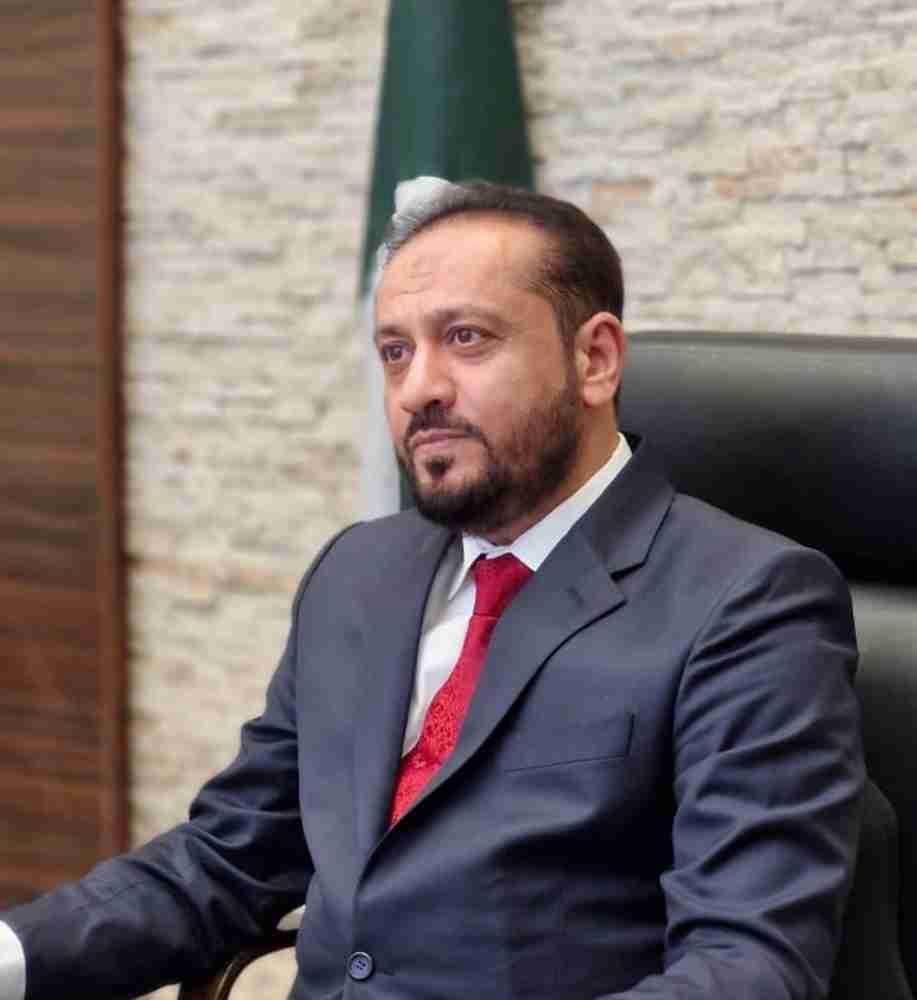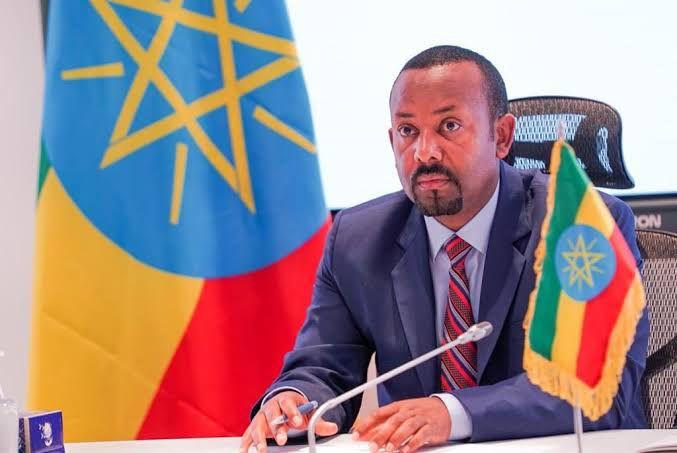By Abdul Rafay Afzal Editor-in-Chief, The Advocate Post
November 3, 2025 |
Lahore–Gibraltar: Gibraltar’s Minister for Education, Environment, Climate Change, Sustainability, Heritage, Technical Services and Transport, H.E. Prof. John Cortes, has extended a message of openness and partnership to developing and self-governing regions such as Somaliland in an Exclusive Interview to The Advocate Post by Abdul Rafay Afzal – Editor in Chief of The Advocate Post, underscoring that
“even small territories can serve as role models of practical, science-based governance.”
In an exclusive interview with The Advocate Post, Prof. Cortes a respected scientist-turned-statesman praised non-diplomatic cooperation as a tool of modern international relations, particularly in education, environmental management, heritage preservation, and climate adaptation.
“If Somaliland or any region in the Horn of Africa approached us with constructive proposals, we would certainly be willing to explore joint work on environmental management, heritage preservation, sustainability, or educational initiatives,”
said Prof. Cortes, highlighting Gibraltar’s tradition of collaboration with partners in Morocco and Senegal.
A Model of Small-State Diplomacy
Prof. Cortes, an Oxford-trained ecologist, emphasized that Gibraltar’s governance success lies in evidence-based policy, inclusivity, and people-centric development a philosophy that resonates with Somaliland’s own democratic and institution-building journey.
He pointed to Gibraltar’s strong environmental legislation, advanced education reforms, and community-driven approach as models of sustainable governance adaptable for other emerging regions.
“We may be a small territory, but we have a big heart,” he noted. “These values are universal — cooperation must be built on mutual respect and shared benefit.”
Education and Sustainability: Foundations of Cooperation
Prof. Cortes detailed Gibraltar’s achievements in education constructing or refurbishing ten out of fourteen schools since 2011 and ensuring that every qualified student receives a fully funded university scholarship abroad.
He described education as the foundation of Gibraltar’s progress, expressing keen interest in teacher training, student exchanges, and academic linkages with countries such as Pakistan, Somaliland, and others.
This invitation aligns with Somaliland’s growing emphasis on educational diplomacy, as seen in its outreach to international partners for curriculum innovation and environmental learning programs.
Heritage as a Bridge of Civilizations
The Minister highlighted Gibraltar’s World Heritage Site at Gorham’s Cave, the Moorish Castle, and multiple restoration projects that reflect its multi-layered identity Roman, Moorish, and British.
He stressed that heritage is not just preservation but a diplomatic tool, capable of connecting communities across continents.
For Somaliland — home to the rock art sites of Laas Geel and ancient Islamic ports such as Berbera and Zeila Gibraltar’s model of heritage-based diplomacy offers inspiration for cultural cooperation and international recognition.
Shared Values in Climate Action
Prof. Cortes also spoke about Gibraltar’s climate commitment, emphasizing how even small states can pioneer change through science and empathy.
He cited renewable-energy expansion, sustainable transport reforms, and undersea power-link explorations with Morocco as examples of creative adaptation.
These priorities mirror Somaliland’s own National Climate Resilience agenda, where community-based initiatives in reforestation and coastal management are redefining local sustainability efforts.
A New Chapter of Civic Diplomacy
The interview highlights how non-diplomatic engagement between Gibraltar and Somaliland rooted in education, environment, and heritage could evolve into a powerful model of “micro-state to emerging-state cooperation.”
It reflects a growing global recognition that progress need not depend on size or formal diplomacy but on shared human purpose.
As Prof. Cortes concludes,
“Leadership means thinking with your head but acting with your heart. Even the smallest places can inspire the world.”





